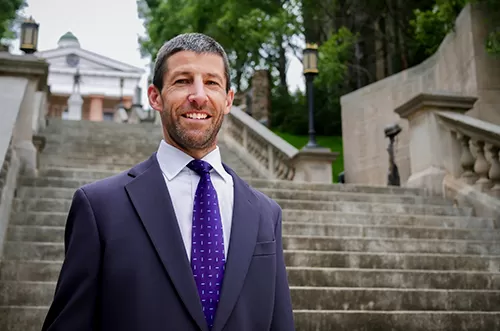Jacobs Eng’g Grp., Inc. v. CONRAIL, 2022 U.S. Dist. LEXIS 69563, 2022 WL 1123789 (E.D. Va. Jul. 21, 2022)
Jacobs Engineering Group, Inc. (“Jacobs”) provided engineering and/or construction management services for Consolidated Rail Corporation (“CRC”) under “on-call” contracts. CRC is the primary subsidiary of Conrail, Inc. (“Conrail”). On November 13, 2008, Jacobs and CRC entered into an Engineering Services Agreement (the “2008 Agreement”), under which Jacobs could provide engineering design, in-house engineering, and construction management services to CRC from December 1, 2008 to December 31, 2009, unless terminated sooner in accordance with Appendix A. The period of performance was extended through a series of change orders. On March 31, 2016, Jacobs and CRC entered into a new contract (the “2016 Agreement”).
CRC hired Cornell & Company, Inc. (“Cornell”) to replace steel cables attached to the Delair Bridge. Cornell used hydraulic jacks from a third party to support the bridge’s lift span while it replaced the cables. A jack failed, killing one Cornell employee and injuring another. Two negligence lawsuits were brought against Conrail, Jacobs, the jack manufacturer, the manufacturer of the t-fitting attached to the jack, and the owner of the jack who rented it to Cornell, which were then consolidated (the “Philadelphia Litigation”). Conrail crossclaimed against Jacobs for contractual indemnification and demanded that Jacobs defend Conrail. Conrail also crossclaimed for breach of contract, asserting that Jacobs had an obligation to procure insurance naming Conrail as an additional insured. Jacobs brought this declaratory action in federal court in Virginia seeking a declaration as to which contract controlled for purposes of the Philadelphia Litigation.
The Court declined to exercise jurisdiction and granted Conrail’s motion to dismiss. The Declaratory Judgment Act provides that, in a case of actual controversy, any court of the United States may declare the rights and other legal relations of any interested party seeking such declaration. If a court has jurisdiction, then (1) there must also be a ‘case or controversy’ within the confines of Article III of the Constitution and (2) the trial court, in its discretion, must be satisfied that relief is appropriate. Here, the Court found that it had subject matter jurisdiction and assumed the dispute was a ‘case or controversy.’ However, the Court, in its discretion, declined to exercise jurisdiction. A declaratory judgment action is appropriate (1) when the judgment will serve a useful purpose in clarifying and settling the legal relations in issue and (2) when it will terminate and afford relief from uncertainty, insecurity, and controversy giving rise to the proceeding. Where, as here, a related state proceeding is underway, a court should consider whether the controversy can better be settled in the pending state court. Factors to consider include: (i) the strength of the state’s interest in having the issues raised in the federal declaratory action decided in the state courts; (ii) whether the issues raised in the federal action can more efficiently be resolved in the court in which the state action is pending; (iii) whether permitting the federal action to go forward would result in unnecessary entanglement between the federal and state court systems, because of the presence of overlapping issues of fact or law; and (iv) whether the declaratory judgment action is being used merely as a device for procedural fencing—that is, to provide another forum in a race for res judicata or to achieve a federal hearing in a case otherwise not removable. The Court concluded the controversy would better to be brought in Pennsylvania state court, as Pennsylvania had a strong interest in resolving all litigation stemming from a single controversy in a single court system, the Philadelphia Litigation’s extensive record would more efficiently resolve the issues, and declaratory judgment from the Federal Court would not settle the entire controversy.
Case Update: Jacobs Eng'g Grp., Inc. v. CONRAIL
- Details
- Written by: Scott W. Kowalski, Mark A. Burgin, Thomas M. Wolf, Kenneth T. Stout and Jason F. Goldsmith





